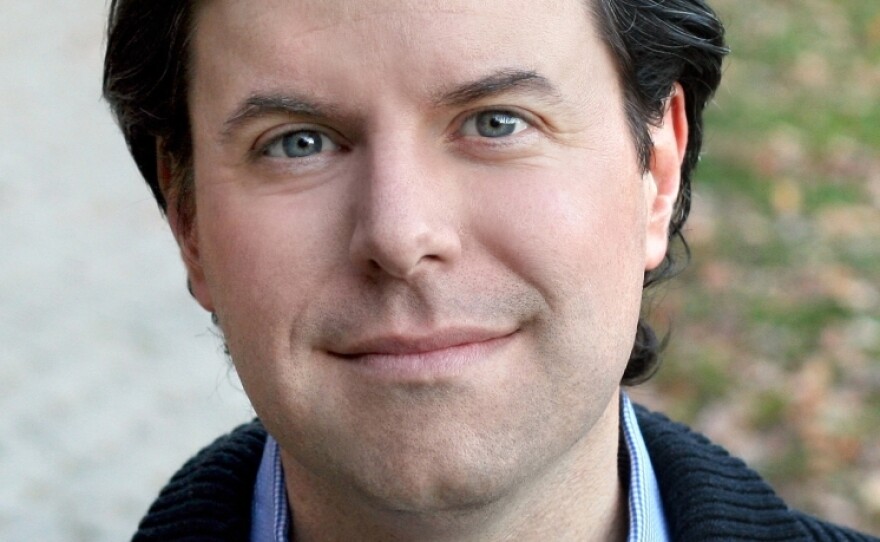If you don't think of patents as a particularly exciting or interesting field, consider a point Charles Duhigg makes in his recent New York Times article, "The Patent, Used as a Sword": According to an analysis done at Stanford: "In the smartphone industry alone ... as much as $20 billion was spent on patent litigation and patent purchases in the last two years — an amount equal to eight Mars rover missions."
These widespread patent lawsuits are discouraging entrepreneurs, Duhigg tells Fresh Air's Terry Gross. "Entrepreneurs do not try and create new types of smartphone technologies now because they know it's pointless: They're going to get sued almost immediately."

The rise in patent lawsuits is due, in part, to the growth of smartphones themselves. As smartphones became nearly ubiquitous, technology companies became more aware they could patent almost anything. Duhigg describes "aggressive moves" that companies use to force the patent office into granting patents "on almost any idea they can come up with."
In the race to the patent office, companies will file the patent for a concept before they actually figure out how to turn the concept into a product. Duhigg says the big losers in this patent race are the consumers and innovation itself. "Patents are being used to wage war in the digital world," he says, "and as a result, patents have become a toll gate on the road of innovation."
Interview Highlights
On Apple's Siri patent
"This is actually a patent that Apple owns, and it's referred to as the Siri patent because it doesn't actually have anything to do with Siri, but it's now seen as a linchpin in protecting Siri. Apple, in 2004, applied for a patent that basically said: We want to create one interface to search across multiple databases. So at that point, as you'll remember, Google had a search engine that would let you search the Web. And what Apple said is: In this patent — and this was before the iPhone, this is before Siri — we're going to create one box that you can type in a term like 'Terry Gross,' and we're going to search the Internet and the contacts on your computer at the same time.
"They didn't explain how this searching would happen, they didn't explain how the software would work, they just explained what the outcome would be. They won that patent last year. It was finally granted to them after being denied nine different times. ... And as a result, they're in a position where they can credibly claim that they own any kind of search engine on Earth that searches more than one database at once."
On patent lawsuits coming out of the woodwork
"Facebook has been hit by numerous patent lawsuits — and these are patents that were filed 10, 15 years ago before anyone had ever really thought of a social network. And yet there are concepts that were patented that they now say people are violating that patent. There is a company that's actually suing almost every app manufacturer — like the companies that make apps that you buy for the iPhone — because they say they got a patent on the concept of paying for something digitally, transmitting digital dollars over the Internet, a patent that they got over a decade ago, and they say that every single app violates that because you have to pay for an app somehow, and you don't hand them cash, you hand them a digital dollar.
"It almost goes without saying that when you are a startup, one of the first things you do is you start setting aside money to defend yourself from patent lawsuits, because any successful company, even moderately successful, is going to get hit by a patent lawsuit from someone who's just trying to look for a payout."
On the incentives of patents
"Patents are an example of the set of incentives — and the entire digital economy is a set of incentives that encourage people to go down one path or another. I think there's a lot of people who right now are worried that people are going down frivolous paths, like inventing new social networks or new games, instead of inventing the cures for cancer or fundamental technologies that will change the world."
Copyright 2022 Fresh Air. To see more, visit Fresh Air. 9(MDAzMjM2NDYzMDEyMzc1Njk5NjAxNzY3OQ001))





